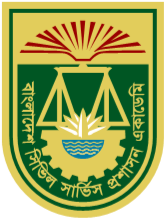Motor Drivers Training Programme of Bangladesh Road Transport Corporation: An Evaluation from the Perspective of National Skills Development Policy 2011
DOI:
https://doi.org/10.56379/bjam.v33i2.3Keywords:
Ministry of Industries, SKILLS DEVELOPMENT, TRAINING, MOTOR DRIVERSAbstract
The paper evaluates the extent, adaptability, relevance and compatibility of motor driving programmes of Bangladesh
Road Transport Corporation (BRTC) with the mission, objectives, and focus of the National Skills Development Policy
2011. With this end in view, the structure, process, performance of training during 2010 to 2020 were taken into
consideration and documentation. It is revealed that the number of trainees increased gradually and rose to its peak in
the year 2019 and plummeted in 2020 due to the Covid-19 pandemic. It is empirically observed that only 7 percent were
female trainees compared to their male counterparts. Training targets under the Annual Performance Agreement during
2014-15 to 2019-20 were mostly achieved. Thirty percent of the 361 successful trainees selected randomly has been
employed in the public and private sector. The training contributed to overseas employment as well. The satisfaction
level of sample respondents about the quality of training facilities and trainers were rated between very good to low with
no excellent grading. It is demonstrated that the training programmes are reasonably adaptive, compatible and have
relevance with the major objectives and focus of the policy under study. In the end, lack of digital technical devices, cut
section models, driving simulators, new model auto vehicles, fund shortage, and a dearth of experienced certified
trainers were identified as major challenges towards effectively achieving the objectives of the training programmes in
comparison with that of the National Skills Development Policy 2011.

